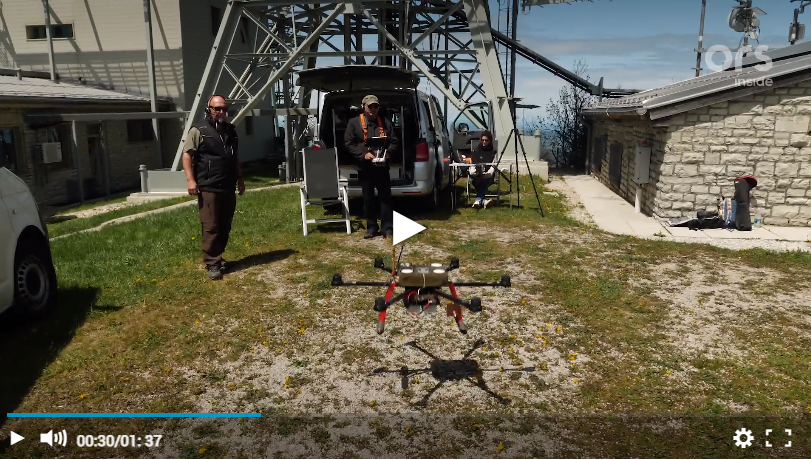Ensuring high transmission quality requires regular checks of the efficiency of the radiating systems. They must be checked to ensure that they are in line with the design specifications, avoiding power reductions or lobe distortions. ORS’s Austrian technicians have used a drone that can “measure” even the tallest towers.

Source
Austrian public radio and television tested an innovative method of measuring antenna efficiency. The tests were carried out by the ORS Group, a technical structure controlled by the public broadcaster, which is responsible for transporting content across different platforms (from terrestrial transmitters to satellite, from cable to IP). The ORS Group manages around 430 sites, regularly checking their characteristics and performance. One of the most important is on the Gaisberg (a 1288-metre mountain in the northern Alps east of Salzburg), which serves around half a million residents in Salzburg and the surrounding area.
Designed in Germany, it is shielded

Source
The idea of using drones for measurements is not new, but the data was often inaccurate due to the large number of signals broadcast by the most important radiant systems and the high powers involved. But the apparatus developed by ARGE Rundfunk-Betriebstechnik (a working group made up of ten German broadcasting companies) has solved the problem thanks to shielding that allows more precise values to be obtained, making it possible to verify the characteristics of the signal and the angle of dip (the angle at which the signal must take when it leaves the antenna, in order to concentrate it in the desired listening area).
